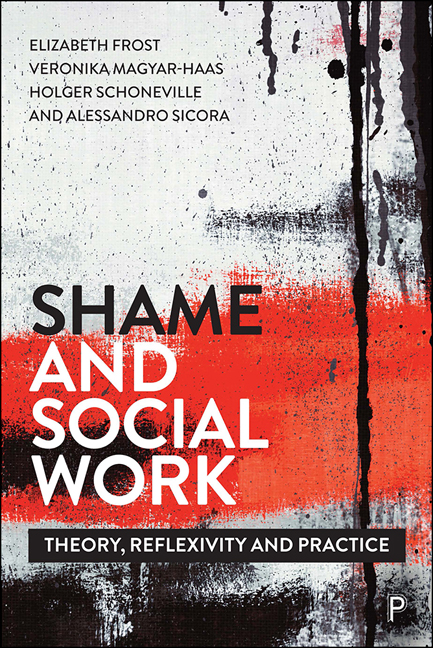8 - Claim, Blame, Shame: How Risk Undermines Authenticity in Social Work
Published online by Cambridge University Press: 10 March 2021
Summary
Introduction
Concerns have been prevalent for some time now regarding the quality and outcomes of social work practice, particularly as this relates to decision-making regarding risk, which is often perceived to be poor, as exemplified most clearly by high-profile service failures. Consequently, the profession finds itself subject to constant scrutiny and continual reform, while social workers themselves practise in a risk-averse climate, very much aware that ‘poor judgement’ can and does lead to disciplinary action, with all that this entails in terms of professional repute, social standing and continued employment. How do practitioners cope with these expectations? In this chapter I will describe how this situation has emerged, and its impact on front-line social work practice, via an account of the impact of risk thinking in social work, which intersects with debates regarding the nature of such work and its relationship to the purposes and activities of the state. I will also highlight how the emotional and practical consequences of working in a context in which blame and shame are real concerns relate to incidences of precautionary practice. The central argument of this chapter is that because of unrealistic expectations of infallibility, social work decision-making has taken on an ‘absurd’ character, and so I explore the value of existential philosophy in enabling practitioners to preserve the authenticity of their practice. I conclude with a call to develop a collective parrhesia to challenge unrealistic expectations regarding the quality, accuracy and value of social work practice.
Histories of social work suggest that a radical shift has occurred in the nature and ethos of practice since around the early 1990s. Underpinning this shift is the confluence of three related political, institutional and intellectual developments: neoliberalism, managerialism and risk. The first of these refers to the rise to prominence of certain key precepts – reason, responsibility and rationality – in the institutions and practices of government. Relatedly, managerialism entails a much more explicit emphasis on efficiency, value for money and effectiveness, stressing accountability and transparency as vehicles for quality and excellence in practice. Risk, meanwhile, although not completely novel, has nevertheless assumed significant prominence as both rationale and organising principle for practice. Although each of these three strands have impacted on social work in significant ways, their cumulative effect is most apparent when we explore the impact of the rise of risk.
- Type
- Chapter
- Information
- Shame and Social WorkTheory, Reflexivity and Practice, pp. 163 - 186Publisher: Bristol University PressPrint publication year: 2020



